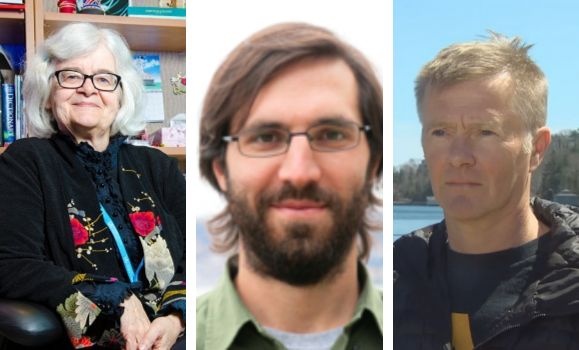What do vaccines, warming oceans, and plastic pollution all have in common? Aside from having a pronounced impact worldwide in their own unique ways, they also represent the areas of expertise of three current –¬∞ƒ√≈¡˘∫œ≤ ø™Ω± faculty members named to the prestigious 2024 from Clarivate, a leading data analytics company.
of the Faculty of Medicine’s Department of Pediatrics and two Faculty of Science researchers, Dr. Eric Oliver of the Department of Oceanography and Dr. Tony Walker of the School for Resource and Environmental Studies, made this year’s list of Highly Cited Researchers, along with former faculty member Dr. Randall Martin. Drs. MacDonald and Walker also appeared on 2023's list.
, Clarivate’s 2024 list recognized 6,636 Highly Cited Researchers from over 1,200 institutions in 59 nations and regions. Canadian institutions had 206 researchers, with the United States possessing the largest number of researchers worldwide (2,507 - a 36.4 per cent share). The list is compiled using data from the citation index, along with qualitative analysis from Clarivate’s Institute for Scientific Information.
Below, Dal’s current Highly Cited Researchers describe the lasting impact of a particularly influential research paper in their own words.
Dr. Noni MacDonald
Most influential paper: “” (published August 2015 in Vaccine)
Citations to date: 3,309
Why it resonates: ‚ÄúThis is the paper that drew attention toÃ˝and started the field of research into factors that affect vaccine acceptance and why some are hesitant. It summarized the definition of a working group on vaccine hesitancy of the World Health Organization. When I wrote this paper, I had no idea it would be cited so much. While I might rewrite that definition now, the core elements are still noteworthy almost 10 years later. In other words, this paper is "shorthand " for some very complex ideas and concepts that have stood the test of time. This paper gets cited in social science, health, ethics, medical and other research in areas where vaccine hesitancy/acceptance are research topics.‚Äù
Dr. Eric Oliver
Most influential paper: “” (published April 2018 in Nature Communications)
Citations to date: 1,215
Why it resonates: ‚ÄúOur study was the first to document the changes in marine heatwaves, which are periods of prolonged extreme ocean temperatures. We found that globally, since the early 20thÃ˝century, the marine heatwave frequency and duration have increased by 34 per cent and 17 per cent, respectively, leading to a 54 per cent increase in total annual marine heatwave days. We found that these changes were largely driven by rising ocean temperatures and so we can expect the trend to continue under global warming. Marine heatwaves are studied in a diversity of disciplines including physical oceanography, climate science, marine ecology, fisheries science, and even management and policy. This paper was written and presented, and the underlying marine hea

